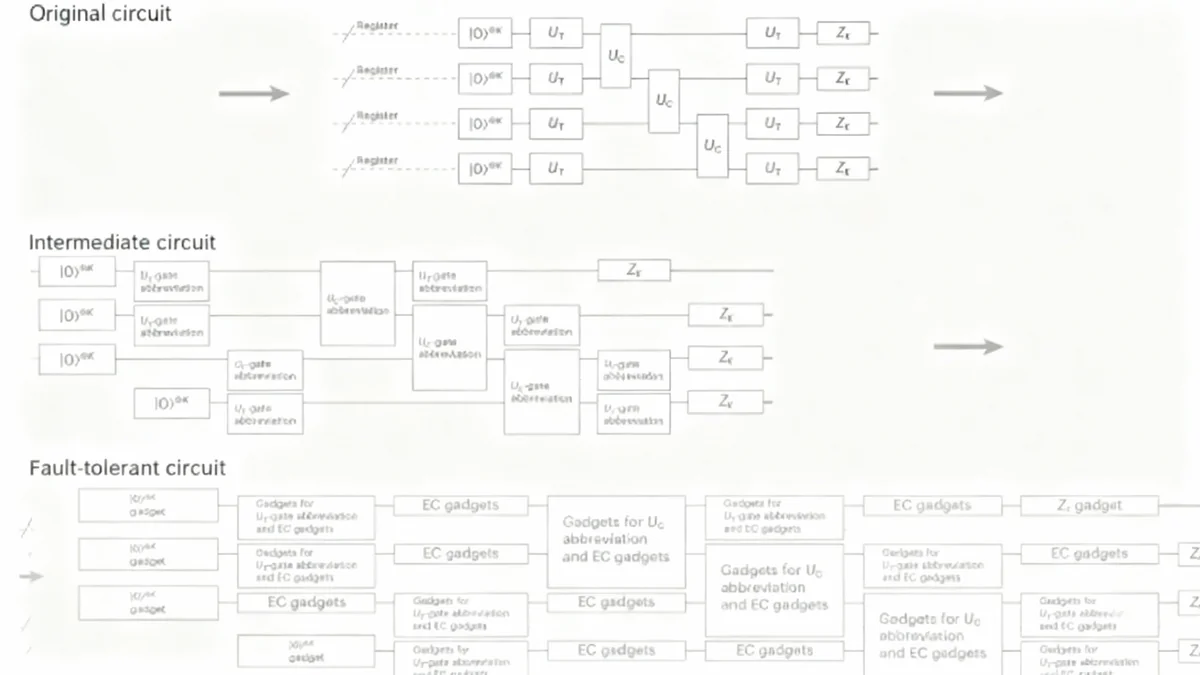The quantum computing sector is experiencing a significant phase of development, marked by strategic corporate partnerships, new software releases, and key executive appointments. These activities highlight the industry's rapid move from theoretical research toward practical, commercial applications across finance, technology, and space exploration.
Key Takeaways
- Major financial institutions like Crédit Agricole CIB are actively exploring quantum applications through partnerships with specialists such as Pasqal and Multiverse Computing.
- Quantum software is becoming more accessible, with companies like Phasecraft launching platforms designed for optimization problems.
- Hardware innovation remains a key focus, evidenced by awards for companies like SemiQon for its cryogenic chip technology.
- The industry is attracting experienced talent from the traditional semiconductor and technology sectors, signaling a maturation of the market.
Strategic Partnerships Drive Commercialization
Collaboration has become a cornerstone of the quantum computing industry's strategy to accelerate the adoption of its technology. Financial services, in particular, are emerging as a primary area for early application and testing.
In a notable move, Crédit Agricole CIB announced its partnership with quantum computing firms Pasqal and Multiverse Computing. This collaboration aims to explore how quantum algorithms can solve complex financial problems, potentially leading to more advanced risk modeling and investment strategies. Such partnerships are vital for translating quantum theory into tangible business advantages.
Similarly, the push for commercialization is expanding globally. QUDORA has entered a strategic partnership with Kensho to accelerate the use of quantum computing in Taiwan. This reflects a broader trend of regional technology hubs investing in quantum capabilities to maintain a competitive edge.
Why Partnerships Matter in Quantum
Quantum computing is an interdisciplinary field requiring expertise in physics, computer science, and specific industry domains like finance or materials science. Partnerships allow established companies to access specialized quantum knowledge without building entire teams from scratch, while quantum startups gain real-world problems to solve and validate their technology.
Advancements in Quantum Software and Hardware
While partnerships create pathways to market, progress in the underlying technology remains critical. Recent developments in both software and hardware are lowering the barrier to entry for developers and researchers.
Software Platforms Emerge
Phasecraft recently launched Mondrian, its quantum-enhanced optimization software platform. The goal of such platforms is to provide tools that help businesses solve complex optimization challenges that are difficult for classical computers to handle efficiently. These challenges exist in logistics, drug discovery, and financial portfolio management.
The development of specialized software is a key indicator of the industry's maturation. It moves the focus from building the quantum computer itself to creating practical applications that can run on it.
Hardware Innovation Recognized
On the hardware side, SemiQon’s cryogenic chip technology received an award from EARTO, a European research and technology organization. This technology is crucial for the stable operation of quantum computers, which often require extremely low temperatures to function. The award highlights the importance of foundational hardware in enabling reliable quantum computation for both terrestrial and space applications.
The Challenge of Cryogenics
Many quantum computers use qubits that must be kept just fractions of a degree above absolute zero (-273.15°C or -459.67°F). This is colder than deep space. Developing efficient and scalable cryogenic technology is one of the most significant engineering hurdles in building large-scale, fault-tolerant quantum computers.
Talent and Supply Chains Signal a Maturing Industry
The growth of the quantum sector is also reflected in its workforce and the increasing attention paid to its supply chains. The industry is attracting seasoned professionals and beginning to address the geopolitical complexities of sourcing critical materials.
Attracting Veteran Leadership
QuantWare, a company specializing in quantum processors, appointed a veteran from the semiconductor and technology industry as its Chief Financial Officer (CFO). This type of executive move is significant, as it shows that the quantum industry is reaching a stage where experienced financial leadership from established tech sectors is needed to manage growth, investment, and commercial strategy.
Startups in the quantum machine learning space have also successfully secured backing to expand their teams, indicating strong investor confidence in the field's long-term potential.
The infusion of talent from the traditional semiconductor industry into quantum startups is a classic sign of a disruptive technology transitioning toward commercial viability. It brings discipline in manufacturing, finance, and scaling operations.
Focus on Critical Resources
As the industry scales, concerns about the supply chains for essential materials are coming to the forefront. The security of rare-earth mineral supply chains is now a topic of discussion within the quantum computing community. These materials are vital for various components in quantum hardware and related technologies.
This focus on supply chain resilience demonstrates that industry leaders are planning for large-scale production and are aware of the potential geopolitical and logistical challenges that may arise.
Expanding Applications and Research Frontiers
Researchers continue to push the boundaries of what quantum algorithms can achieve. From analyzing satellite imagery to advancing machine learning, the potential applications for quantum computing are vast.
Quantum Algorithms for Earth Observation
In Poland, researchers have initiated projects to test the utility of quantum algorithms for analyzing satellite imagery. This research could lead to breakthroughs in environmental monitoring, agriculture, and national security by enabling much faster and more complex analysis of large datasets from space.
Quantum Machine Learning: The Next Frontier
Quantum Machine Learning (QML) is a field that explores how to combine quantum algorithms with machine learning. Proponents believe QML could solve certain problems exponentially faster than classical machine learning, leading to more powerful AI in areas like drug discovery and materials science.
Building a Quantum-Ready Workforce
The growth of the industry depends on a skilled workforce. Recognizing this, nations like South Korea are making strategic efforts to integrate quantum science into society to build quantum literacy. Furthermore, top universities worldwide are expanding their quantum computing programs, establishing themselves as critical hubs for research and talent development in this transformative field.





